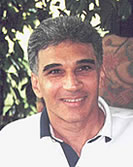This lesson may be a little tough on you, so you better sit down. First: Stop being a tennis wimp! Not a great way to begin a lesson, is it? Let me explain. This is a way of thinking, a subtle mindset that most players do not even know exists. Too many players allow other people or circumstances to incorrectly affect their attitude, their game and even how they learn to play tennis. Certainly a teacher and some advice from others can help, but most players relinquish too much control to overt and external situations and people. They are dependent on a coach, player, some technical information, certain conditions, etc. to play well, to feel confident and to develop their game.
When teaching I have seen many subtle versions of this mindset over the years. I call it the tennis victim mentality! For example, I may say to a student, "Relax and hit the ball slow when volleying at the net." Their response, "But my opponent is hitting the ball hard and fast." In other words, what they're thinking is, "It's not my fault, they're hitting it too fast! Tell them to slow down so I can hit it easier." Can you imagine a pro saying that to his opponent? I can hear Rafael Nadal now telling Roger Federer, "Hey Roger could you please slow down your shots so I can hit a well-placed, touch drop shot and win? If you are going to hit that hard I'm taking my tennis balls and going home."
Of course not. Instead, Nadal adjusts as well as he can for the situation. He takes control of his tennis. If a player hits the ball hard, this does not mean you have to clobber the ball back! You learn to control your racket face and speed. When I teach players to relax at the net, to slow down and to use their opponent's speed, they seem to snap out of it and take back control of their game.
One of the greatest mental skills in tennis is to learn to be self-reliant. The dictionary defines self-reliant as, "having the confidence in and exercising one's own powers or judgement." It is up to you!
YOU must take control of your tennis development. Certainly you can seek help from a good pro, a tennis camp, or an academy, but YOU are responsible for YOUR improvement -- not the pro, not the camp, not the academy.
YOU must take control of your practice sessions. Practice... really practice! Besides doing specific drills, when you play a fun match, practice new concepts that you have learned. Stop worrying about winning and what your team or teammates will think of you in practice matches. Try something different... practice!
YOU must take control of your mental attitude in matches. All tennis matches come complete with many failures, adversities, ups and downs, and surprises. Stop blaming everyone and everything else... adjust mentally and move on.
YOU must take control of your point play in matches. Players can hit the ball slow, medium, or fast; they can lob it, drive it, or spin it; they can hit the ball in the air or on a bounce. You must learn to stay alert and adjust to the changing conditions. Stop thinking there is nothing you can do.
In other words, you learn to think from the inside out. Let me illustrate the dynamics of learning to think from the inside out and learning to take control of your tennis.
You are in a match and your opponent hits you a short ball. You correctly hit an approach shot and come up to the net. Your opponent nails a beautiful passing shot and wins the point. Now what? Below are two opposing mindsets that can occur. The "victim mentality" vs. the "champion mentality."
VICTIM MENTALITY (Relinquishing too much control to the external) - "I hit an approach shot and came up to the net like I was supposed to, but I lost the point anyway. A lot of good coming to the net did for me! Now what do I do?"
CHAMPION MENTALITY (Taking control from the inside) - "My opponent hit a good passing shot, but my approach shot was short. The next time let's see if I can deepen it up and create a little more pressure."
If the approach shot was deep and he or she still lost the point the champion would think, "Maybe I'll add a little more speed to the deep approach shot to create pressure." If his opponent still passes they would think, "Let's see if my opponent can keep it up over the long haul. I'm going to keep the pressure on consistently with deep approach shots."
NOTE - The mentally tough competitor takes mental control and always thinks there is a way to solve the problem. As a result of this inside-out thinking, he or she keeps trying different options and solutions rather than concluding that the situation is out of their hands.
The bottom line is STOP relinquishing too much control to overt situations, conditions and people. Take control of your tennis by leaning to think differently. When you notice yourself thinking incorrectly and being controlled by an external situation, STOP and THINK AGAIN. Only this time think from the inside out and take control of your tennis. DARE TO BE DIFFERENT... BREAK THE MOLD!


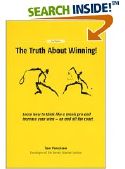
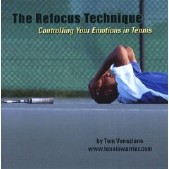
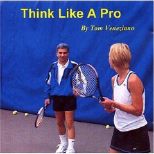
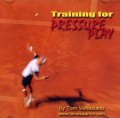



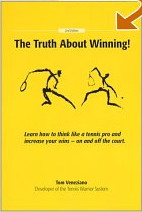
 You will join 13,000 other subscribers in receiving news of updates to the Tennis Server along with monthly tennis tips from tennis pro Tom Veneziano.
You will join 13,000 other subscribers in receiving news of updates to the Tennis Server along with monthly tennis tips from tennis pro Tom Veneziano. 